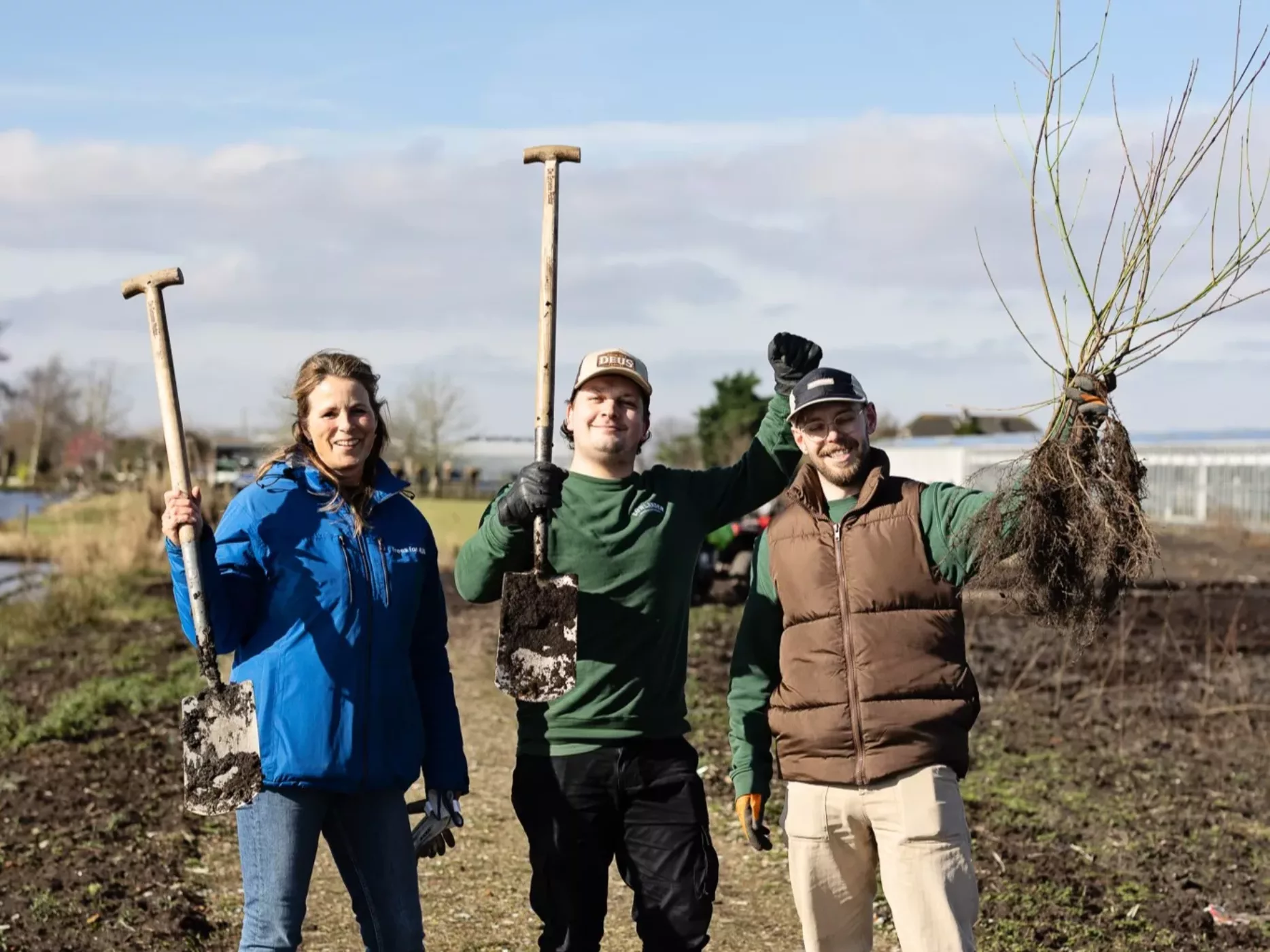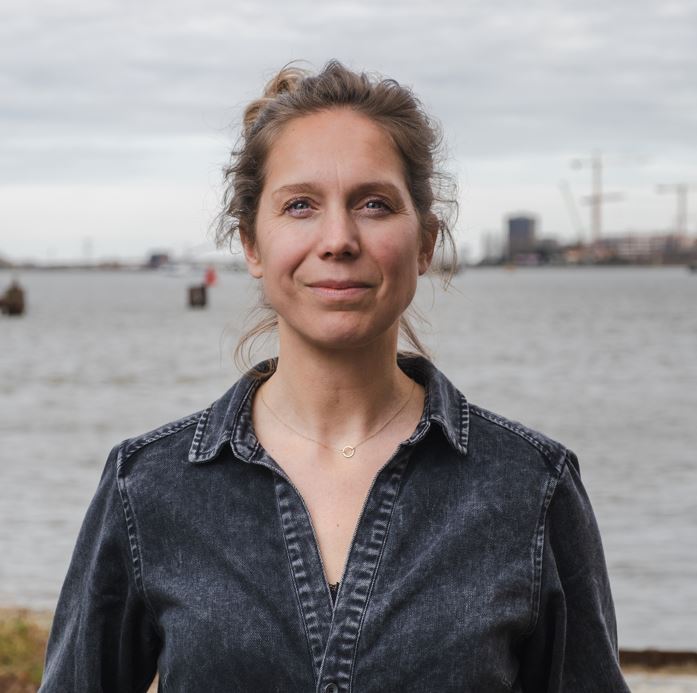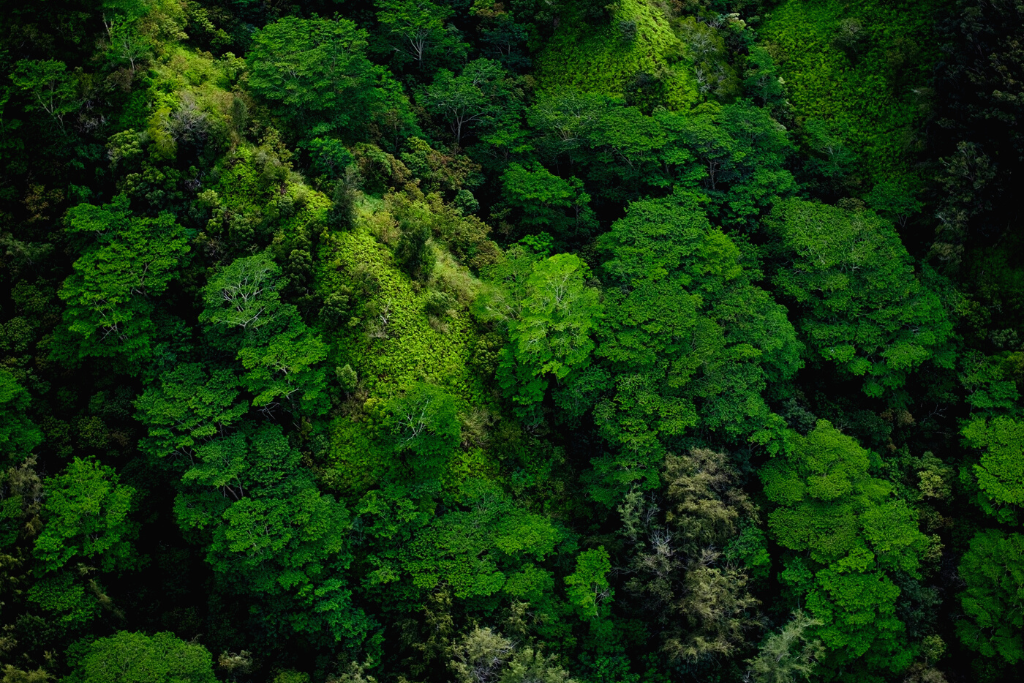Our CO2-partner Lowlander produces beer with a message
07 March 2024

07 March 2024
From lemon zest to pine needle: many Lowlander beers contain residual materials. This is one of the ways for the botanical brew to reduce CO2 emission. Whatever cannot be reduced (yet), is compensated for via Trees for All. Marketing manager Fleur de Vries relates what is in the CO2-partnership for Lowlander. “I can recommend it to everybody.”
Love of nature is in Lowland’s DNA, according to Fleur de Vries. She points at a bottle on the table: “Just look at our name and logo. “Lowlander of course refers to the low countries, which are extra vulnerable owing to rising sea levels. Something not to be ignored in December 2023 and January 2024, when water rose to extraordinarily high levels in many places in the Netherlands.”
On the labels we also see plants, herbs and fruit: the ‘botanicals‘ used in the brewing process. Not only do they give the drink its distinctive taste, they also make it possible for Lowlander craft beers to brew with a lower alcohol percentage and to contribute to the brand’s sustainable mission. “Many of the botanicals are residual materials. In our IPAs we use needles from discarded Christmas trees and we re-use lemon peels from the catering industry for our white ale.”
The Lowlander mission: take less from nature and give back more. The latter does the beer brand for example by donating 1 % of its annual turnover to sustainable partners, such as Trees for All.
The partnership started in 2022. “We wanted to link up with a powerful and reliable partner”, says Fleur. “and in a very concrete way, Trees for All contributes to a better climate by planting trees worldwide.”

Fleur de Vries
Meanwhile Lowlander and Trees for All have become CO2 partners. This implies that they compensate for CO2 emissions by planting trees in CO2 compensation projects abroad. “Since 2022 we have been entitled to call ourselves climate-neutral. Our net emission is 0%. We would never have achieved this so quickly without the partnership.”
In order to become a Trees for All CO2 partner, it is a must for an organization to produce a reduction plan which states how you are going to reduce CO2 emissions. The Trees for All motto is namely: reduction before compensation. CO2 compensation must not be a reason to continue emitting equal amounts of CO2.
For that reason, Lowlander had an extensive life-cycle analysis carried out, which, among other things, makes the company’s CO2 emission comprehensible. On this basis, the beer company made up a reduction plan.
The Lowlander impact report states exactly how much CO2 is emitted by certain activities. “Beer is a natural product”, Fleur explains. “It consists of water, barley, yeast and hops, to which we add botanicals. But it has to be processed, packed and transported. This implies environmental damage, like CO2 emission during transportation.
The report even includes all indirect emission (97% of the total). Think of storing the beers in catering industry partners’ pub and restaurant refrigerators. “You can’t escape that. But we are conferring with our partners in order to make the whole chain sustainable.”
Major challenge? Packaging. “Constitutes 42% of CO2 emissions”, Fleur cites the impact report. “For comparison: transportation takes up 5%, the brewing process itself 22%.”
“We are overjoyed with the deposit on beer cans, because it is a giant step for the industry. But there is a lot more to be done. We are working hard on returnable bottles and re-usable barrels. One-way plastics are out completely, only re-usable material now. Our center of attention: how can we work as efficiently and sustainably as possible?”
Another challenge remains the fact that the beer company is dependent on external partners for production and distribution. “We are not large enough to have our own brewery. But we encourage our partner brewery to reduce its emission, for example by installing solar panels and applying re-usable pallets.”
In the meantime, Lowlander will continue to monitor its own emission. “That may sound like quite a job – and it sure is”, Fleur smiles. “But such an impact report also renders a positive result. You have a much clearer insight in the impact you leave. If you advertise yourself as climate neutral, you should be able to prove it in figures. Where are you now and where are you heading?”
In 2025, Lowlander wants to reduce its own direct emission to 0, before C)2 compensation. In 2030, the brand wants to be climate positive. In other words: leave more positive than negative impact.
“such concrete targets motivate”, Fleur finds. “And you don’t have to do it all by yourself, you know? For measuring the impact, Carbon Architecture assisted us. And Trees for All has much experience in reduction plans. So I would say: make use of other people’s knowledge and experience. Yes, I can really recommend everybody to reduce your emission and compensate for it in this way.”

In 2023, Lowlander compensated for 1,334.2 tons of CO2. After conversion, Trees for All planted nearly 7,500 trees in an agroforestry project in Bolivia. There we help farmers to switch to sustainable cultivation. Traditional agriculture causes namely massive loss of forest.
By planting indigenous trees the soil becomes fertile again and all kinds of plants and animals return. The project also provides better money and living conditions for farmers. Apart from this compensation project abroad, Lowlander donates trees for our other forest projects, too. Thus they regularly participate in arbor days in the Netherlands.
Read more